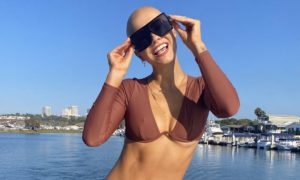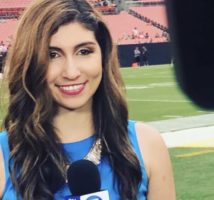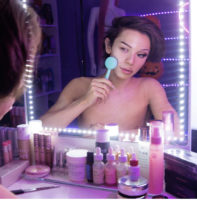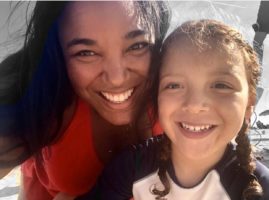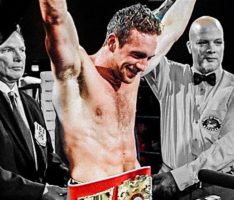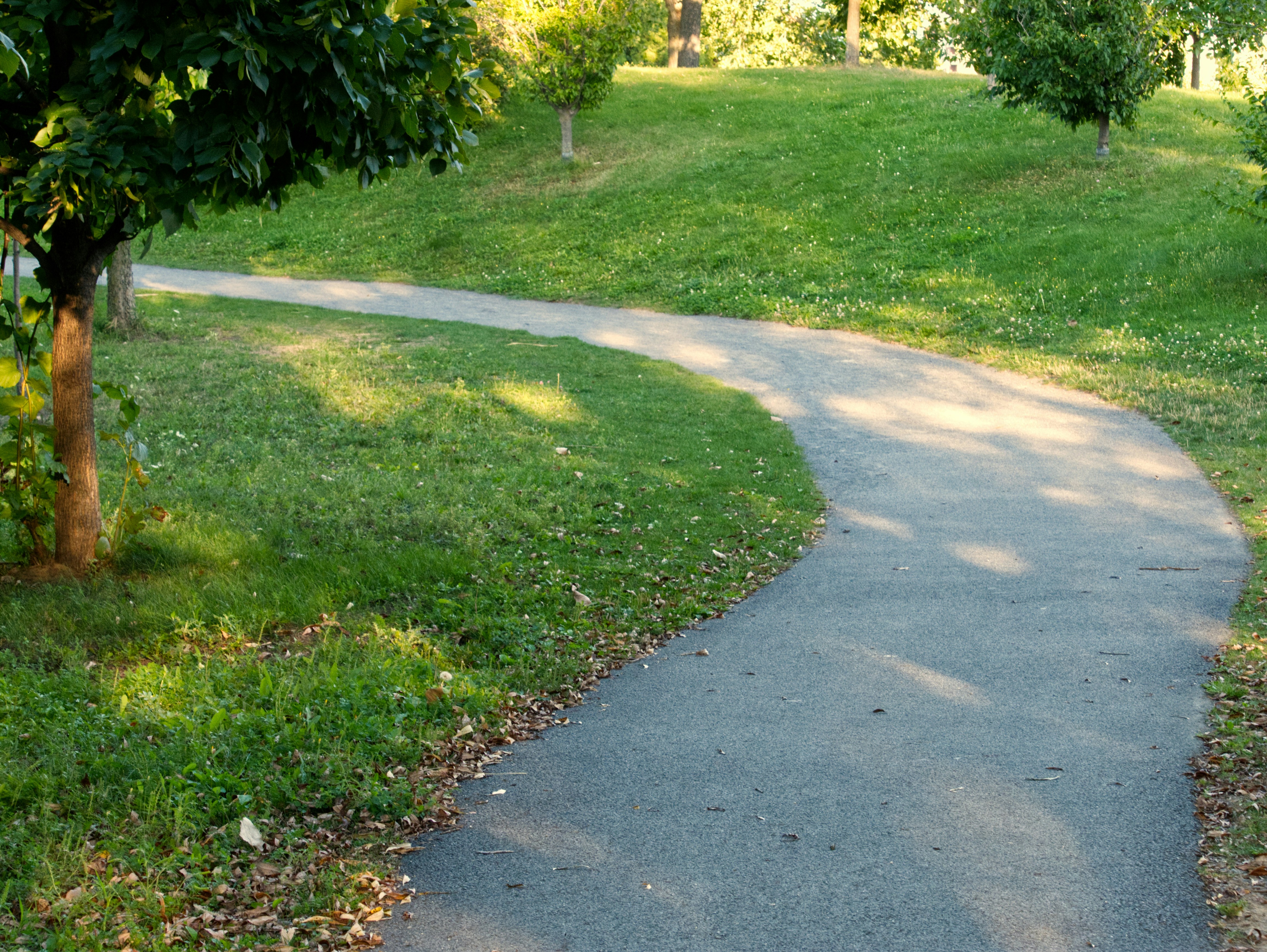Activity
-
Victoria Bjorklund shared a letter in the
 Health, Wellness and Chronic Conditions group 8 months, 4 weeks ago
Health, Wellness and Chronic Conditions group 8 months, 4 weeks agoTo: Everyone who has ever been a caregiver or care receiver
Victoria B. BjorklundI have been happily married for 51 years to a former New York Jets professional football player turned lawyer and educator, my husband Hank. We met and married young in my sophomore year in college. I was a pioneering woman student in the first 4-year class of women admitted to Princeton University. Being married in no way slowed down my academic ambitions: I graduated Phi Beta Kappa in three years from Princeton, where I was also a founding member of the women’s varsity basketball team and the Medieval Society of Princeton. I went on to earn a Ph.D. in Medieval Studies at Yale University and a law degree at Columbia University School of Law. I was among the first women to make partner at my international law firm in its New York City office. There I founded and headed the firm’s Exempt Organizations group representing charities, their boards, and their donors. Among my clients were the Louvre Museum, Metropolitan Museum of Art, the American Museum of Natural History, the Robin Hood Foundation, and Doctors Without Borders USA, of which I was the founding American director and where I still chair the Board of Advisors. I also taught the law of nonprofits at Harvard Law School for 9 years.
My husband and I have led an exciting personal, educational, professional, and recreational life together. That great life was turned upside down on April 18, 2016, when Hank collapsed at the gym and was rushed by ambulance to the hospital. After many examinations and tests, doctors determined a problem with his brain. Now, almost 8 years later and after having seen more than 70 doctors and specialists, we still do not have a diagnosis for my husband’s brain condition. We do, however, suspect that the brain challenges that he fights every day are attributable to the 16 years of his life spent playing tackle football from Pop Warner to the pros. Recent studies by the Boston University UNITE Brain Bank and the Concussion Legacy Foundation show that the risk of chronic traumatic encephalopathy (“CTE”) increases with every year of tackle football played. Development of CTE is correlated with number of years played, number of sub-concussive hits received, and the force of each hit. Unfortunately CTE cannot yet be diagnosed during life. Hank has joined thousands of athletes and their families in pledging his brain to the UNITE Brain Bank after his death. Although he does not exhibit any of the typical symptoms of CTE, we wonder whether the disruptions of his autonomic nervous system that he now lives with are an atypical presentation of CTE.
When my husband was stricken in 2016, he was suddenly debilitated, unable to walk more than a few steps without using a wheelchair. For a man who considered himself a 65-year-old stud, this was a shock and very depressing. In an instant, our favorite activities of mountain climbing in Europe, snow-shoeing in New England, and trekking in Scandinavia were over for us. Everyday living was so challenging that we had to move out of our house to the home we had bought for my Mother where we might live on a single level.
Thinking my husband was dying, we decided in 2016 that I should see a ”widowhood counselor” to help me deal with the sudden changes in our lives. The counselor asked me one day, “What in your earlier life made you so extraordinarily capable of coping with challenges?” That question stopped me in my tracks. I hadn’t analyzed capability. I was just a doer—somebody who got things done by putting one foot in front of the other, solving complex problems step-by-step with clear intellect and determination. Where did that life approach come from?
When I was 16, my parents announced to my older sister, younger brother and me that they wanted to have another baby. My older sister was married and moved to the west coast a few months after my mother gave birth to my younger sister during my junior year of high school. Unfortunately, my Mother experienced afterbirth bleeding and was repeatedly hospitalized for surgery, even having a near-death experience. My Father was so stressed with this, he had a heart attack and was hospitalized in a different hospital. I found myself at home with a precious infant sister, a younger brother to feed and get to and from school, household scheduling and tasks, and visiting my parents in their respective hospitals. This was a formative coping experience for me, yet one that I know confronts many other young people all over the country and the world. Over the years, my Father had multiple additional health issues that required my involvement including managing my parents’ affairs. After my Father’s death, my husband and I moved my Mother across the street from us so that we could be more deeply involved in her Alzheimer’s care. We managed her medical care, her finances, and spent hours with her every day enjoying her company and supporting her aides. In fact, my husband’s 2016 collapse came at the same time that my Mother’s dementia significantly worsened requiring more of my daily involvement as she stopped walking and needed to be moved in and out of bed several times a day with a Hoyer lift requiring two people.
In my academic life, being in the first class of women at Princeton had presented its own challenges. Many male students and alumni were openly hostile to women. A professor organized a shunning incident against me in a course where I was the only woman student, which only motivated me to work harder. I earned an A+ in that course and an apology from the professor. Only recently did I realize that I never had a woman professor at Princeton, at Yale Graduate School, or at Columbia Law School. Dealing with men and their conscious or unconscious biases was par for the course. Sports were no exception. As the former captain of my high school varsity basketball team, I suited up my first week at Princeton and went to the gym to shoot baskets, hoping to get into a pick-up game. When I asked for a basketball at the equipment room, I was told by the several cross-armed equipment men that there were no basketballs for “girls”. When I asked about the 4 racks of basketballs behind them, I was told those were only for “men.” My efforts to win over the equipment men failed but I was not about to accept that treatment. So I went through the building until I found the new women’s athletic director and explained my problem. She rolled her eyes at the equipment men’s recalcitrance and told me to walk back slowly and ask for a ball again. By the time I got back downstairs to the equipment room, one rack of basketballs had been rolled to the side and bore a hand-lettered sign saying “Girls.” I went back to the gym every day for many days to shoot baskets with balls from that rack. I was the only girl asking. The “men” never let me join a pick-up game, but the women’s athletic director did watch me every day. The next fall she called me and said, “I’ve decided to form a women’s varsity basketball team and my first call is to you!” I was glad to join. And by the time later that year that I married the big football star, the equipment men who had once denied me a basketball were such my close buddies that they offered to throw me a bridal shower.
In graduate school, I was the only woman Ph.D. in my graduating group along with 6 men. The head of my department said, “I’ll place the men in their jobs first and then I’ll get to you.” My reaction? “The hell with this! I’m getting my own job.” And I did. That infuriated the department head, who believed it was his right to place graduate students. When I decided to apply to law school several years later, he refused to provide any paperwork documenting my Ph.D. Rather than fight with an older aggrieved man, I contacted the head of the Yale Graduate School. He said, “Well, I could direct him to write for you but who knows what he might say. I would prefer to write for you myself.” Thus, I ended up with a much better letter of recommendation than I would otherwise have received. I was accepted at both of the law schools to which I applied. When I graduated as an honors scholar from Columbia Law School, I was advised that I had 3 strikes against me: I had a Ph.D., I was married, and I was a woman. A senior professor advised me to “Go be a big fish in a little pond.” I told him “But I want to be a big fish in a big pond” and so I accepted the offer of a top-10 international law firm in New York City. After working at the firm for over 30 years, I was honored to receive a trophy as a “Trailblazer” being the first woman in the Firm’s more than 140-year history to have “run the table” from summer associate to partner to senior partner/group head to retirement.
The late Rosalynn Carter famously said “There are only four kinds of people in the world: Those who have been caregivers, those who currently are caregivers, those who will be caregivers, and those who will need caregivers.” Managing my husband’s healthcare at the same time I was managing my Mother’s care during her last years was incredibly stressful. Nonetheless, I know that I am incredibly privileged having had supportive family, friends, aides and health insurance to help me bear this load. I have turned my intellect to learning as much as I can about brain health and supporting Hank with medical appointments, tests, physical therapy, neuropsychological therapy, nutrition and sleep. In addition, I have sought out opportunities for my husband to replace his past sports activities with intellectual activities that help him cope with the grief of losing his former life while stimulating his brain. The main activities Hank turned to were writing poetry and singing his poems. In a caregivers group I participate in at our local Glen Cove Hospital, I was asked to share with the group an activity that my husband could manage. When I said that Hank had taken up poetry to help him cope, the caregiver sitting next to me piped up, “Well, I am the Poet Laureate of Nassau County, and I teach poetry.” I literally ran after this woman at the end of the meeting and cornered her in the hospital hallway. “May I bring my husband to your class, please?” She replied, “Yes, but you can’t just bring him. If you come, you have to write too.”
So that is how Hank and I started working with now-former Poet Laureate Evelyn Kandel, who is also an Unsealed Writer. We have spent hours and hours preparing for and with Evelyn and our new classmates in her weekly classes over the past several years. She encouraged Hank to write a book about his football and brain experiences, which he mustered the effort and courage to do. His 2022 book, entitled “Head Hits I Remember: Football, Dysautonomia, and my Brain” is a very honest exploration of his athleticism and brain challenges. Our poems are also included in the new anthology of Evelyn’s students entitled “13 Poets From Long Island” published in September 2023. So from having to “give up” many activities Hank and I did for decades before, we have now elected to invest our time and energies in our “new normal” which includes poetry and singing alongside daily exercise, nutrition and healthy sleep. I am thrilled to report that Hank has made huge strides in recovery, vastly improving his physical stamina and walking ability. We have also met and enjoyed the company of a new set of friends whom we now regularly see via Zoom poetry meetings.
Ironically, on October 15, 2023, in a simple trip-and-fall, I managed to break my knee cap into three pieces requiring surgery, three weeks in the hospital, and wearing a cumbersome Bledsoe Brace. Now I am on the cusp of starting outpatient physical therapy to regain my normal walking gait. What a turnabout in our lives! In an instant, I was transformed from the perennial care-giver to the care-receiver. We quickly learned several lessons. First, thank goodness for the family and friends who jumped in to help us—his sister and my sister dropping off food for Hank and having him for dinner, for instance. Remember the precious infant sister I cared for? She is now my health-care proxy actively engaged in my recovery. Second, Hank actually benefitted from swapping roles. He found strength to drive himself to and from the hospital to visit me and the confidence to manage household chores in my absence. Third, we were reminded again that life circumstances are never static; they ebb and flow constantly. Despite my feeling incredibly fit and stable, one day-dreaming step looking up at the sky through beautiful willows had proved otherwise. None of us is invincible. I am not invincible.
Equally as important, I, a caregiver for so long, have had to relax into being the care-receiver, asking for and accepting support from my family and community of friends. I am extremely grateful to all of them, including my “new” friends and colleagues in poetry. Many public libraries and adult-education programs offer classes in poetry, in journaling, in writing. I encourage anyone needing to jump-start a change in outlook to give them a try.
Check out my poem in the book “13 Poets From Long Island” on Amazon – It is free for those with Kindle Unlimited.

